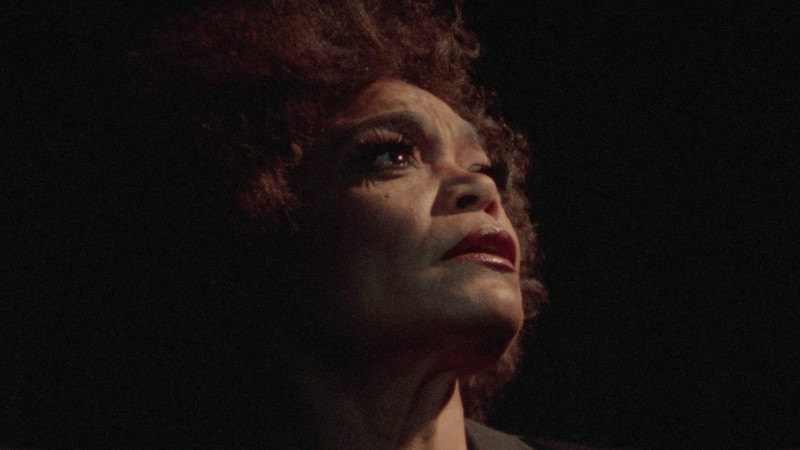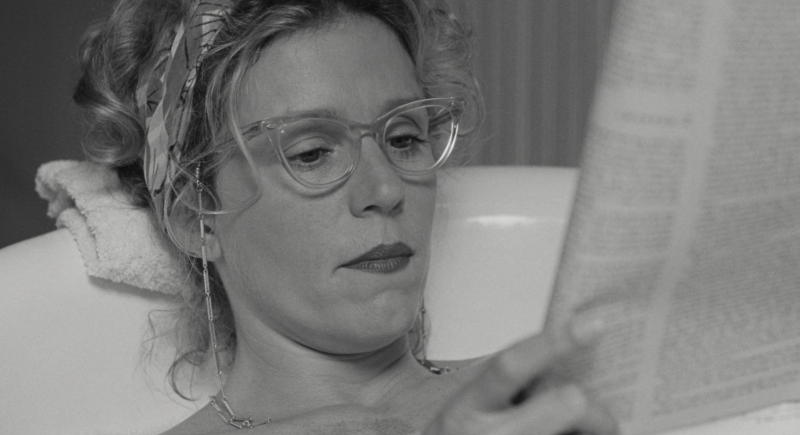Meeting a Music Master, Erik Nordgren

When I embarked on my biography of Ingmar Bergman in the late 1970s, I was intrigued by the fact that friends and fellow critics in Sweden never mentioned the composer Erik Nordgren. Yet he had written the music for so many of the acclaimed Bergman films. Certain other composers, like Dag Wirén, Erland von Koch, and Lars-Johan Werle, had on occasion scored movies for Bergman, but under the old studio system in Stockholm, where Svensk Filmindustri reigned supreme and Nordgren was the resident music director, he was the turn-to man for veterans like Gustaf Molander, as well as for younger filmmakers like Hasse Ekman, Lars-Eric Kjellgren, and, even later, Jan Troell.
Bergman’s “troupe” always stuck close by his side, on and off the set. During the typical shooting day, the Master would be surrounded by Gunnar Fischer or Sven Nykvist behind the camera; P. A. Lundgren, the set designer; Mago or Cecilia Drott checking the costumes; Börje Lundh attending to makeup; and Katinka Faragó, his faithful script assistant. Nordgren, though, never spent downtime with the director, as did the crew and actors like Gunnar Björnstrand or Erland Josephson. He kept to himself, in the manner of most fine composers.Tall, grave, well-groomed, with rather severe dark-framed glasses, he could have been taken for a notary or a civil servant. He had studied the violin and viola as well as conducting and composition at the Stockholm Royal Academy of Music, and as World War II came to an end, he composed the music for his first feature film, Hampe Faustman’s Crime and Punishment . In 1947, he met Bergman, who had written the screenplay for Molander’s Woman Without a Face . He scored his first film for Bergman, Thirst, two years later.
Nordgren is credited with scoring eleven films for Bergman—among them Smiles of a Summer Night (1955), Wild Strawberries (1957), and The Magician (1958)—the last being The Virgin Spring (1960), with its evocative use of medieval instruments. For Nordgren, less was more. As early as 1952, he and Bergman were using a kind of musique concrète for a passage in Summer with Monika . Nordgren could endow certain scenes with considerable suspense by using a single guitar or a harp or a solo drum, as in the brilliant sequence in The Magician when Dr. Vergérus stumbles frantically around the attic to escape from Vogler’s clutches.
Although he worked uncredited on the odd film in the early 1960s, Nordgren resurfaced with a bang in 1965, when he wrote a folk melody for Troell’s short subject Interlude in the Marshland (now restored and included on Criterion’s release of Troell’s magnificent 1966 debut feature, Here Is Your Life). Max von Sydow, as the itinerant brakeman, whistles the tune as he walks and then dances along a single railroad track in the far north of Sweden. Gradually, the accordion takes over, and the waltz rhythm suggested by Nordgren during the shoot seems to express the character’s repressed energy. Troell still today will bring out his harmonica to play what he calls Nordgren’s “Marshland Waltz.” When one hears it in a slightly more sophisticated form behind the opening shots of Here Is Your Life , the melody immediately sets the mood of the film—the dance of life, punctuated by setbacks but always pressing forward in eager anticipation of the next turn in the road.
On a winter’s morning in November 1979, I took a train out to the maritime community of Saltsjö-Boo, about half an hour from Stockholm. There, in a leafy street filled with discreet villas, Nordgren lived in retirement, after decades as head of the orchestra department at the Swedish Radio Symphony Orchestra. We talked of Bergman and Troell, and he took me downstairs to his studio, with a battery of electronic equipment impressive for the period. He recalled his first meeting with Bergman, in the late 1940s: “It was quite an experience, because I felt he had some psychic probes that he sent into me, looking everywhere at once. In a way, it was rather frightening, although very nice, and after thirty seconds, I felt that he knew everything he wanted to know about me.”
He noted that Bergman would always send him the script at the outset. “But then nothing would happen until the film was cut . . . At the beginning, I would try and work out a score from the script, but I realized Ingmar knew exactly what kind of music he wanted. He wrote his screenplay with music within it, as it were.” So once the film was well under way, the two men would discuss the music, Bergman would signal the ideas he wanted in the score, and he would then leave the composer to his own devices. When editing commenced, Bergman took over, applying the appropriate music to passages throughout the film.
Nordgren was impressed by Bergman’s musical awareness. “In The Seventh Seal, there’s a place where the double basses go down to their lowest tone, which is a C, and Ingmar, who was at the recording, reacted immediately and said, ‘Well, what was that?’ It was a very unusual tone, even in a normal symphony orchestra, but Ingmar heard it immediately. It’s really quite remarkable, because he was not a musician, and not a composer. And, of course, you can’t hear it in the film, because it won’t work in optical sound!”
For The Emigrants (1971), Troell again turned to Nordgren. “I like it very much when he describes the way the four seasons run into one another. [Erik] wrote four smaller pieces in which the music is, so to speak, immobile, and not a narrative that one has to follow. He wrote them in keys that harmonized with each other so that, at the editing stage, you could fade one into the next one.”
Perhaps the most disquieting bars of music Nordgren ever wrote are heard off- and on-screen in Here Is Your Life , during Allan Edwall’s memory of his wife’s death—at first, a delicate, high keening on the organ, and then a rustic dance tune heard on an old 78 r.p.m. disc, played out until the end to rhyme with the woman’s untimely death, the record left revolving, sounding like a buzzing fly. Nordgren had studied Swedish folk music for many years, and both this and the waltz tune that he first wrote for Interlude in the Marshland reflect his love for the Swedish countryside and its traditions.
As we said good-bye, Nordgren confided with a wistful smile that he was surprised that I was still interested in his music. “It happens all the time in Sweden that a composer suddenly is no longer the composer. After all, I wrote music for films regularly for around twenty-five years, and I always expected people to ‘retire’ me.” But now, with Here Is Your Life at last restored to its original glory, a new generation of film buffs will discover the talent of Erik Nordgren.
This is one in a series of pieces devoted to film figures Cowie has gotten to know in the course of his career. Read his introduction to the series here.



